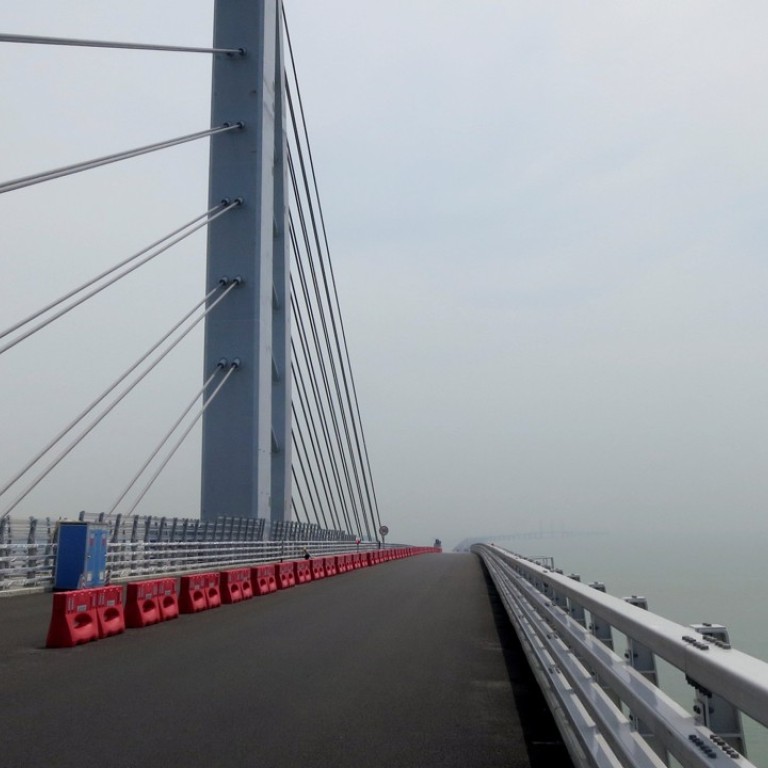
Opinion: China needs Hong Kong as an ideas hub
‘Knowledge is a special commodity. It can be reused, several people can use it at the same time, and it tends to grow where people have already clustered’
The Chinese Government’s 2017 work report announced that a plan will be drafted to develop the Guangdong-Hong Kong-Macao Greater Bay Area to give full play to the distinctive strengths of Hong Kong and Macau, and elevate their roles in the country’s economic development and opening up.
Unlike previous initiatives under the banner of the Pearl River Delta and Pan-Pearl River Delta, this plan looks outward rather than inward. It stresses external links and securing a commanding position in global industry chains in order to drive mainland development.
Hong Kong offers important assets to this initiative, not only because of its business friendly environment, hard and soft infrastructure providing world-class communications and logistics services, and English as lingua franca, but also because of its role as an ideas hub and its common law system.
These are critical assets whose potential values have greatly appreciated in the new information and communications technology-driven global economy.
Knowledge is a special commodity. It can be reused, several people can use it at the same time, and it tends to grow where people have already clustered. As such, information hubs for global chains tend to emerge in existing international economic and financial centres. This in turn generates new ideas for new businesses.
Hong Kong already has a substantial cluster of mainland and overseas firms, and connectivity to a vast reservoir of innovative enterprises within the region. It has been a pioneering innovator of numerous global supply chains, and has a considerable concentration of financial and allied professional services and an open cosmopolitan social and cultural environment. It does, however, need to address its chronic shortages of skilled talent and developable land supply.
The common law system, our other asset in support of innovation, is friendlier for business than the civil law system practised on the mainland – friendlier in terms of providing protection for investors and creditors, and facilitating economic innovation.

The common law system is less state-dominated than the civil law system and its courts are freer to adjudicate on ideas that have not yet made it into the legal code by turning to legal principles and the doctrine of precedent. Note that the leading financial centres in the world, especially in international finance, are mostly concentrated in common law jurisdictions.
Two important legal cases in the history of Hong Kong testify to how the common law system has facilitated economic development, and illustrate why the common law system of Hong Kong is a unique and invaluable asset for supporting China’s and indeed Asia’s economic development.
The first case involved the Landlord and Tenant Ordinance of 1947 that effectively prevented housing redevelopment despite a massive influx of immigrants during the early postwar years. It did this by making it impossible to evict tenants in older blocks in order to redevelop properties.
But in 1955 the Tenancy Tribunal made an innovative interpretation of the law by ruling that a tenant could occupy “only a corner of the site to which the proposed redevelopment related so this presence will not materially affect the proposed development.”
As a result, it became possible to evict tenants within the law and redevelop the entire pre-war housing stock into taller structures to house new immigrants. Without such legal imagination the development of Hong Kong would have been stunted.
The second case involved the use of agricultural land in the New Territories for container storage purposes, which was challenged by the government in 1983 under the Block Government Lease.
The Hong Kong Court of Appeal held that the designation of agricultural land in the lease “was descriptive only” and added: “It would be absurd to construe the lease so as to compel a lessee to maintain a lot as a broken latrine for 75 years.”
Subsequently, containers could be stored on agricultural land. Had it not been for that decision, Hong Kong would have been prevented from becoming the busiest container port in the world, and China’s opening would also have suffered.
Tong Xiao Ling of China’s Ministry of Foreign Affairs in Hong Kong recently wrote eloquently in the Wall Street Journal extolling the territory’s many advantages in contributing to the “Belt and Road” initiatives and its readiness to search for new growth drivers and ways to achieve economic upgrading.
It seems to me that as long as government policy can address the shortage of developable land and talent supply, Hong Kong’s path to becoming an information hub for new global supply chains, built on the foundations of a common law system that protects investor and creditor rights and does not stand in the way of business innovation, is bright indeed. This Greater Bay Area initiative will propel the region forward to spearhead China’s “Belt and Road” infrastructure investment outreach strategy.
Richard Wong is the Philip Wong Kennedy Wong Professor in Political Economy at the University of Hong Kong

